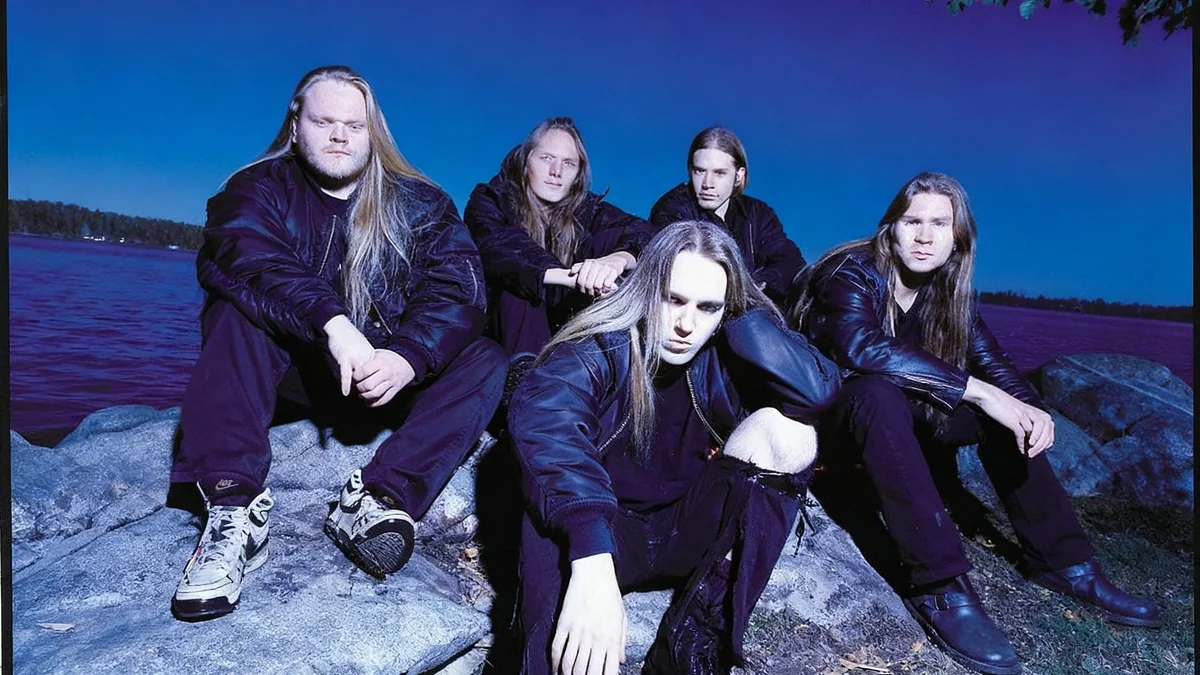Before Rush became progressive rock titans, they were just teenagers in a basement trying to emulate their heroes. For a young Geddy Lee and his bandmates, that meant tackling the monumental sound of Led Zeppelin, a task they quickly discovered was far more difficult than they imagined. In fact, out of Zeppelin's growing catalog, there was only one song the fledgling band felt they could successfully perform for an audience.
Key Takeaways
- In their early days, the members of Rush struggled to cover Led Zeppelin songs, finding the music too complex.
- A 1969 Led Zeppelin concert in Toronto was a formative experience for a 16-year-old Geddy Lee.
- The only Zeppelin track Rush regularly included in their early bar sets was "Livin' Lovin' Maid (She's Just a Woman)".
- The song's simpler, repetitive blues structure made it accessible for the young band to learn and perform.
- Ironically, Led Zeppelin guitarist Jimmy Page reportedly disliked the song for its simplicity and rarely played it live.
A Concert That Changed Everything
In the summer of 1969, a 16-year-old Geddy Lee was at a crossroads. He had recently made the bold decision to drop out of school to pursue a career in music, a choice that caused significant concern for his mother. Lee felt an immense pressure to prove that his path was a serious one, not just a youthful fantasy.
That August, an opportunity arose to see a relatively new band from the UK that was generating considerable buzz. Alongside his friends and future bandmates Alex Lifeson and John Rutsey, Lee queued for hours in the Toronto sun to get into The Rock Pile venue. The main attraction was Led Zeppelin.
The performance was a revelation. Lee and his friends secured seats in the second row and witnessed a show so powerful that plaster reportedly fell from the ceiling by the end of the night. For Lee, any thoughts of returning to a conventional life were erased. He had seen the benchmark for rock and roll greatness and was determined to reach it.
The Drive to Succeed
Geddy Lee has spoken about how his mother's initial disapproval of his career choice became a powerful motivator. "I felt like I had to make sure that it was worth it," he later recalled, explaining his desire to show her he was a dedicated professional and not just chasing an unrealistic dream.
The Basement Rehearsals
Inspired by the concert and the release of Led Zeppelin's debut album, the young musicians who would become Rush got to work. Their initial plan was straightforward: learn to play Zeppelin's songs, build a reputation as a cover band, and then begin writing their own material.
They quickly ran into a significant obstacle. As they gathered in their basement practice space and tried to play along with the record, they found the music was overwhelmingly complex. The intricate guitar work of Jimmy Page, the powerful drumming of John Bonham, and the dynamic arrangements were far beyond their capabilities at the time.
Lee has admitted that they found the songs simply "too hard" to play. Despite their passion and dedication, the technical skill required to replicate Zeppelin's sound proved elusive. Their dream of becoming a premier Zeppelin cover act was quickly shelved.
Finding the One Playable Song
Even as they began playing gigs in local bars, the band struggled to incorporate their heroes' music into their sets. They attempted several Zeppelin tracks, but none felt right or sounded polished enough for a live audience. However, there was one exception.
"We tried a number of Zeppelin songs when we played in the bars, but we felt we couldn't pull them off. We did have ‘Livin’ Lovin’ Maid’ in our set for a while, though," Lee has stated, identifying it as the only one they felt they could master.
The track, from Led Zeppelin II, was fundamentally different from many of the band's other compositions. Its structure was more direct and accessible for a young group still honing its skills.
Why Was It Easier?
- Repetitive Structure: The song is built around a repeating pattern in A major.
- Blues Foundation: It relies more on a rhythmic, chugging blues riff rather than the complex chord changes and time signatures found in songs like 'Black Dog'.
- Accessibility: This straightforward approach made it easier for a young band to learn and execute tightly in a live setting.
An Ironic Foundation for Greatness
The fact that Rush could play "Livin' Lovin' Maid" is layered with irony. While its simplicity made it accessible to them, that same quality made it one of Jimmy Page's least favorite Led Zeppelin songs. He reportedly disliked its rudimentary structure, and as a result, Led Zeppelin themselves rarely performed it live.
For Rush, however, mastering this song was a crucial early step. It allowed them to include a popular track from a major band in their set, helping them connect with audiences and earn a paycheck. That small victory was a form of validation for Lee in his quest to prove his career choice to his family.
Furthermore, the song's reliance on a powerful rhythmic drive can be seen as an early, unintentional lesson. Years later, with the addition of drummer Neil Peart, Rush would take the concept of rhythmic complexity to a level few bands have ever reached. Their early struggles with Zeppelin's music, and their small success with one of their simplest songs, provided a foundational experience for a band that would go on to create some of the most intricate and celebrated rock music in history.




